Boiler Installation Skelton
Top 10 New Boiler in Skelton
Receive up to 3 Boiler Installation quotes for your project today! Compare profiles, reviews, accreditations, portfolio, etc... and choose the best deal.
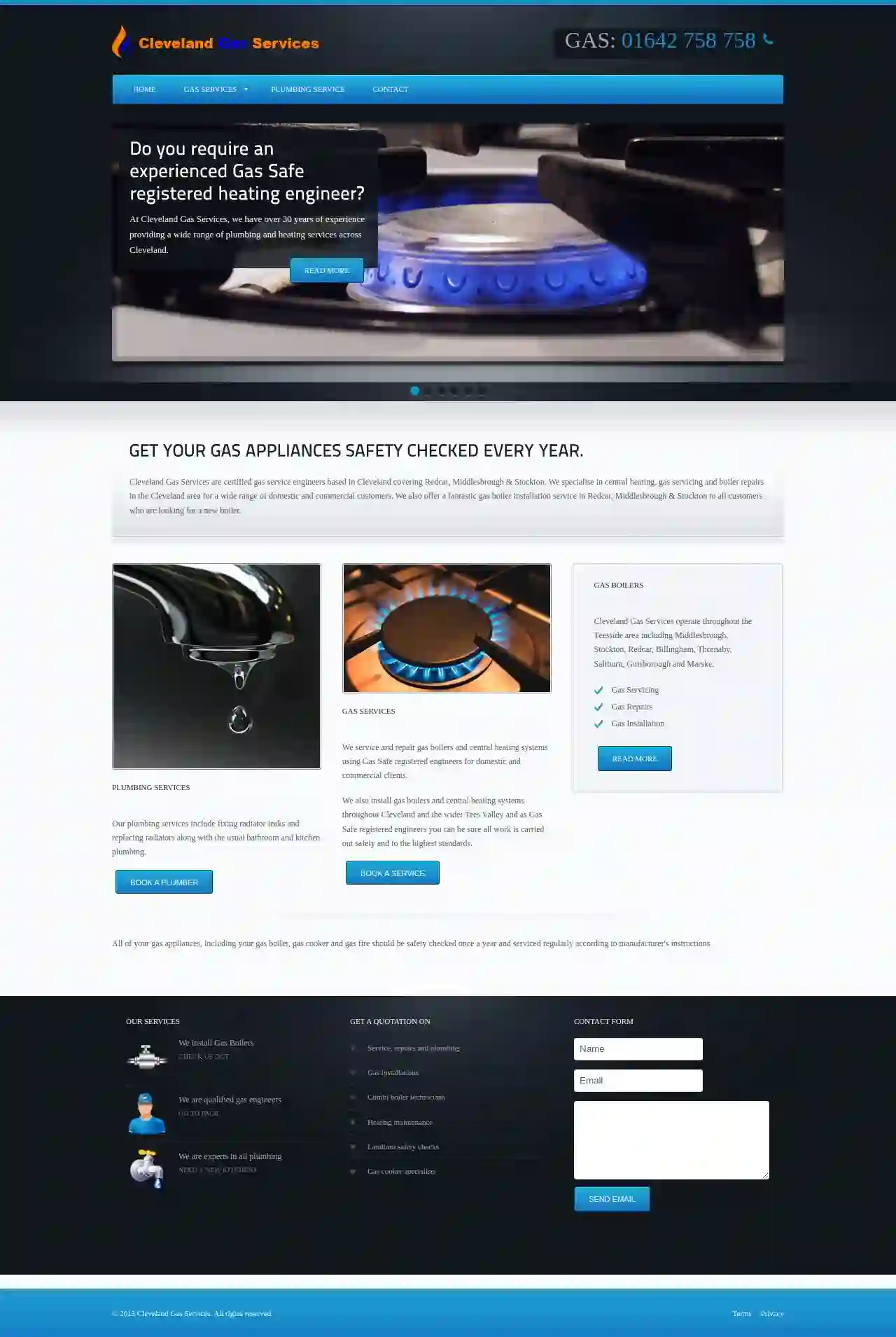
Cleveland Gas Services - Plumbers Redcar
4.921 reviewsRedcar, GBAt Cleveland Gas Services, we have over 30 years of experience providing a wide range of plumbing and heating services across Cleveland. Our dedicated team can work efficiently to get your plumbing and heating system back to working how it should. We are Gas Safe registered engineers, so you can be sure all work is carried out safely and to the highest standards. We install all forms of central heating and are ideally situated to give you the best advice possible on which form of central heating is most suitable for your house. We also offer a fantastic gas boiler installation service in Redcar, Middlesbrough & Stockton to all customers who are looking for a new boiler.
- Services
- Why Us?
- Gallery
Get Quote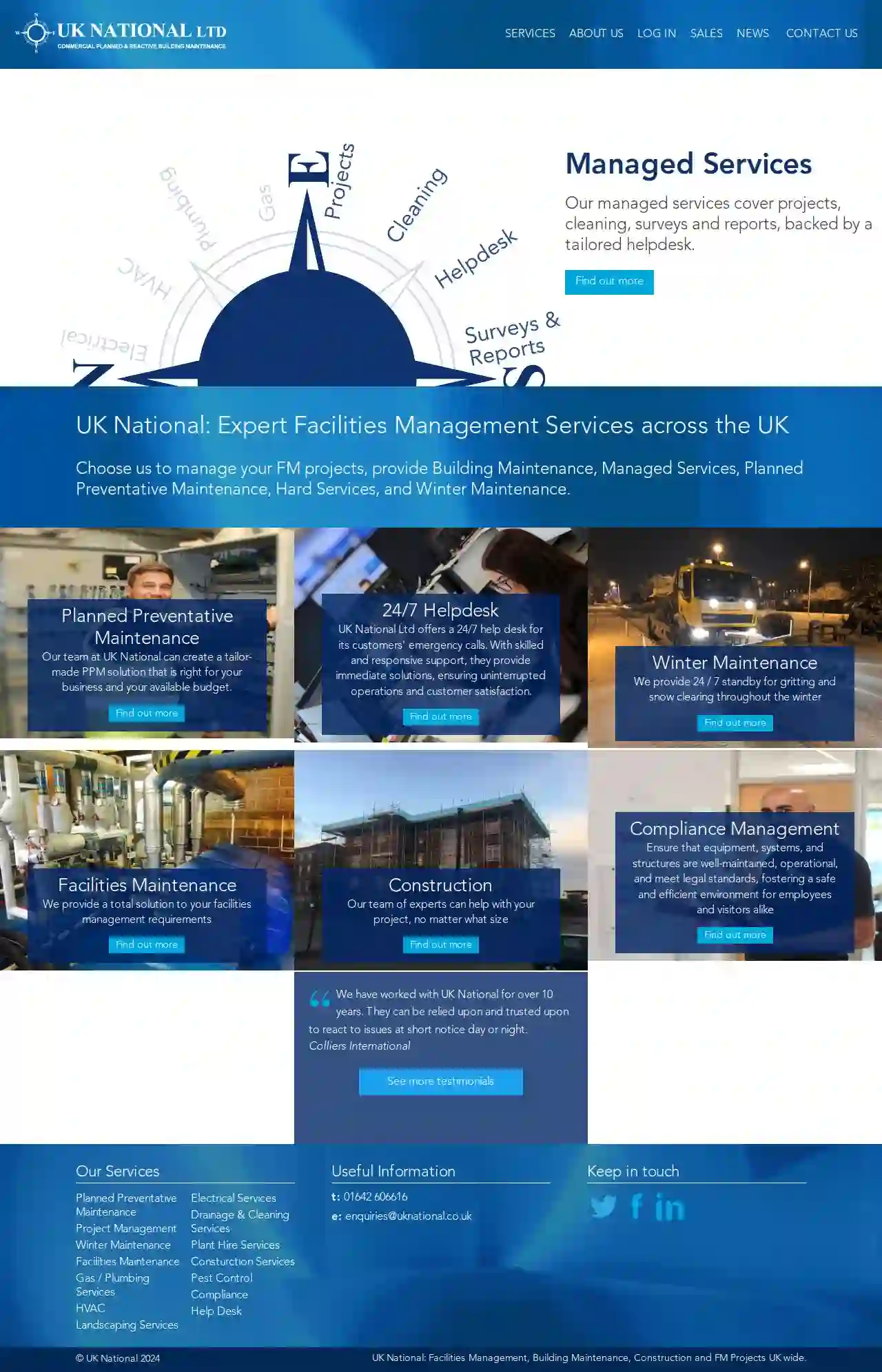
UK National Ltd
4.516 reviewsDurham Lane Industrial Estate, 4 Wass Way, Eaglescliffe, TS16 0RG, GBEstablished in 1994, UK National Ltd provide a high quality property maintenance and facilities management service. With over 20 years experience of undertaking maintenance of commercial properties throughout the UK for major clients and managing agents. References are available on request. Our well trained professional staff are fully uniformed and carry identification cards at all times. Your satisfaction is our primary objective!
- Services
- Why Us?
- Testimonials
- Gallery
Get Quote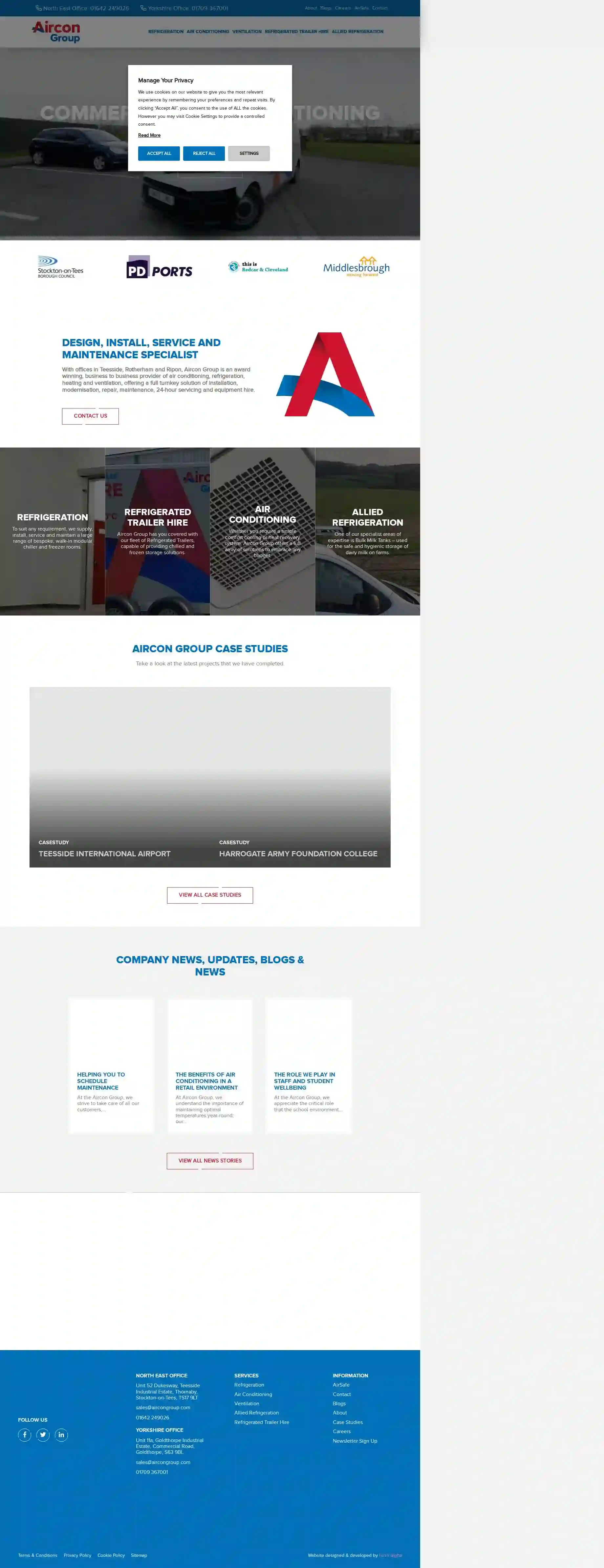
Aircon Group
4.73 reviewsTeesside Industrial Estate, Thornaby, Unit 52 Dukesway, Stockton-on-Tees, TS17 9LT, GBAircon Group is a leading provider of refrigeration, air conditioning, and ventilation solutions. With a strong presence in the North East and Yorkshire, we offer a range of services including refrigerated trailer hire and allied refrigeration. Our team of experts is dedicated to providing high-quality solutions that meet the unique needs of our clients. With a commitment to excellence and a passion for innovation, we strive to be the go-to partner for all your refrigeration and air conditioning needs.
- Services
- Why Us?
- Accreditations
- Gallery
Get Quote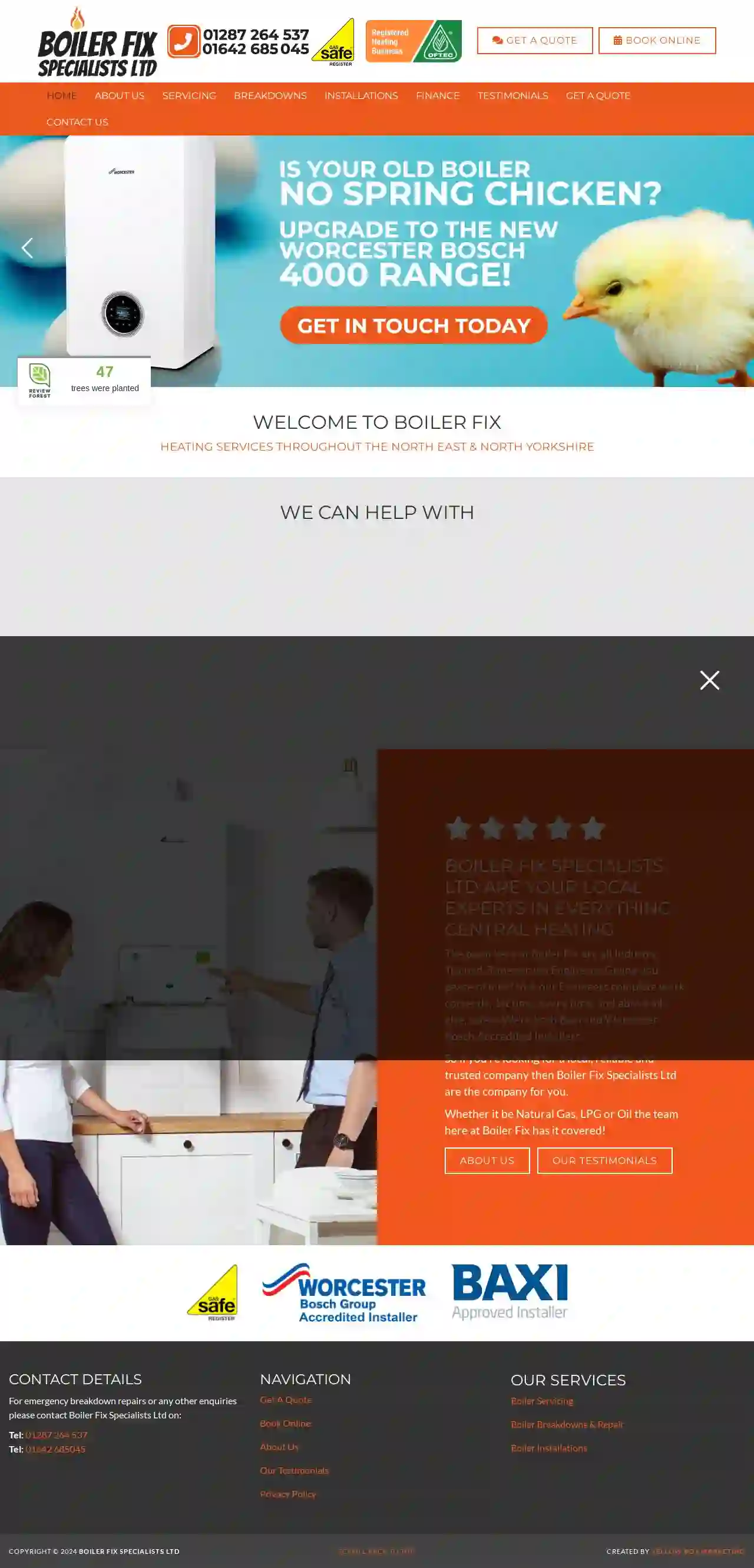
Boiler Fix Specialists Ltd
4.849 reviewsAllum Way, Skelton Industrial Estate, Skelton, Unit 2, The B Hive Business Centre, TS12 2LQ, GBWelcome to Boiler Fix Specialists Ltd, your local experts in everything Central Heating. Our team of Industry Trained, Time served Engineers are dedicated to providing you with peace of mind that our work is completed correctly, 1st time, every time, and above all else, safely. We're both Baxi and Worcester Bosch Accredited Installers. Whether it be Natural Gas, LPG or Oil, we have it covered! We provide all aspects of boiler services, including boiler installation, servicing, and repairs. Contact us today to arrange your service or book online for a free no-obligation instant boiler quotation.
- Services
- Why Us?
- Gallery
Get Quote
Technicold
4.210 reviewsCowpen Ind Est, 10 Lagonda Court, Billingham, TS23 4JF, GBTechnicold is an established air conditioning and refrigeration company based in the North East of England. We do air conditioning installs & air conditioning repairs work in Middlesbrough, Stockton-on-Tees, Redcar, Billingham, Hartlepool, and across the North East. We install and repair domestic and commercial air conditioning systems. Here at Technicold we have an exceptional team of air conditioning engineers who can undertake all types of domestic and commercial work. Air conditioning is fantastic as it both keeps commercial premises and homes cool, but also acts as a source of heating as well - in fact using air conditioning to heat your home is much cheaper than using a boiler.From our base in Billingham we cover all the North East, as well as the wider areas of the UK for major commercial projects. Why not get in touch to arrange a quotation?
- Services
- Why Us?
- Gallery
Get Quote
Coldtech Refrigeration & Air Conditioning Ltd
4.526 reviewsLawson Ind Estate, Middlesbrough, TS4 3BN, GBColdtech Refrigeration & Air Conditioning specialises in refrigeration and air conditioning repair, maintenance, installation, design and sales. We are located in Middlesbrough, UK and offer services all around the North East of England. Our Key Services Installation of high quality and efficient air conditioning and refrigeration systems. We understand that every contract is different so all of our maintenance packages are expertly tailored to suit the individual need of each client. Scheduled and emergency service and repair packages to suit our clients needs. We install, maintain and service air conditioning for all industrial, commercial & office environments. All Coldtech equipment is high quality, environmentally friendly, reliable and fit for purpose. We also provide a host of domestic services so please feel free to call for further info on this. why choose coldtech With over 38 years of experience we have grown to become the leading name within refrigeration & Air Conditioning throughout the North East & Yorkshire. Reputation A long track record of delivering a high quality service to our wide customer base. experience & expertise A trusted team of experienced and skilled engineers ScheduledMaintenance Comprehensive maintenance plans tailored to clients individual needs. Emergency repair services 24 / 7
- Services
- Why Us?
- Gallery
Get Quote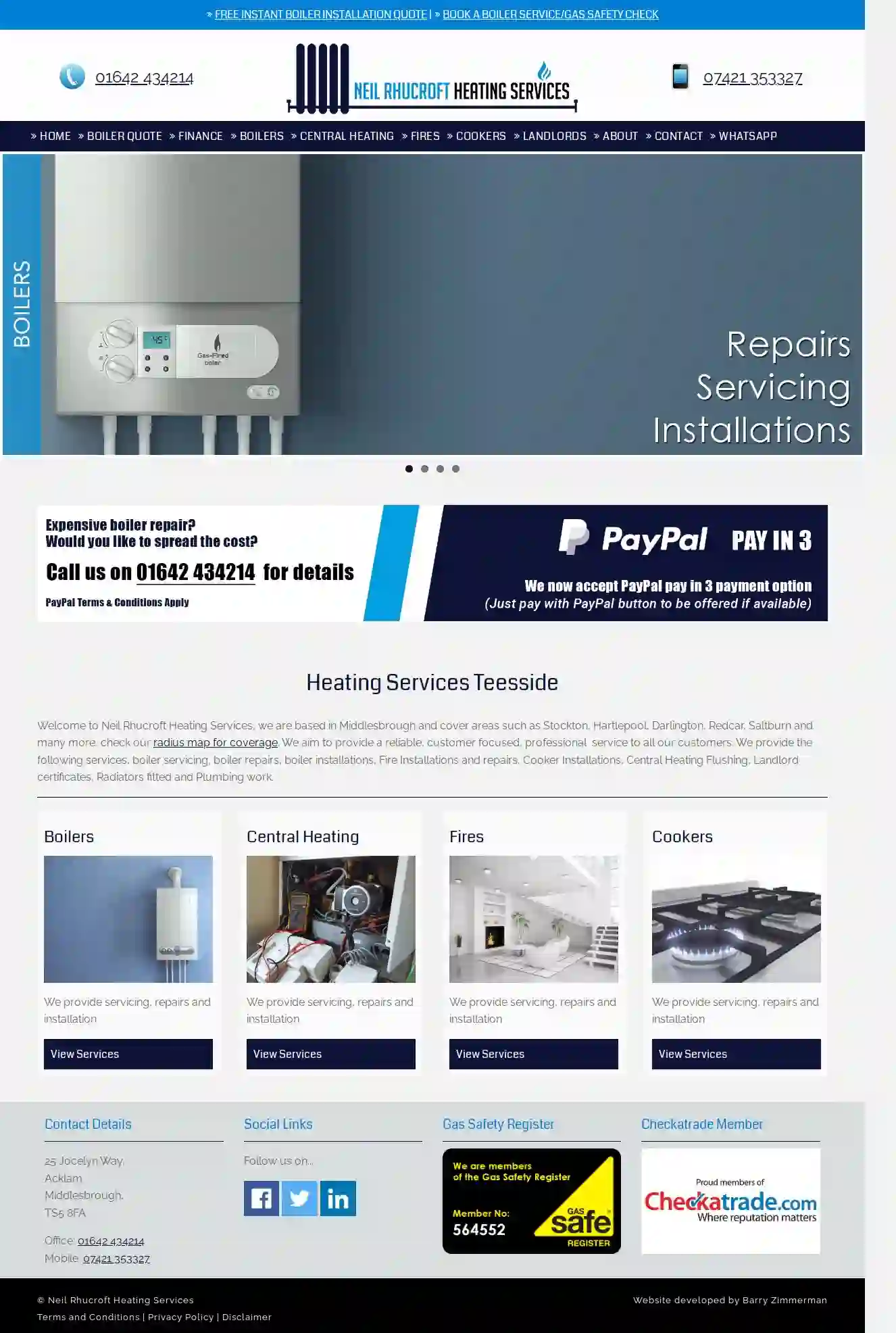
Neil Rhucroft Heating Services Ltd
543 reviewsAcklam, Middlesbrough, 25 Jocelyn Way, TS5 8FA, GBNeil Rhucroft Heating Services is a customer-focused heating company based in Middlesbrough, Teesside. We cover a wide area including Stockton, Hartlepool, Darlington, Redcar, Saltburn and more. Our team of professionals provides a reliable service for all your heating needs, including boiler servicing, repairs, installations, fire installations and repairs, cooker installations, central heating flushing, landlord certificates, radiator fitting, and plumbing work. We aim to provide a high-quality service to all our customers, ensuring their satisfaction.
- Services
- Why Us?
- Accreditations
- Gallery
Get Quote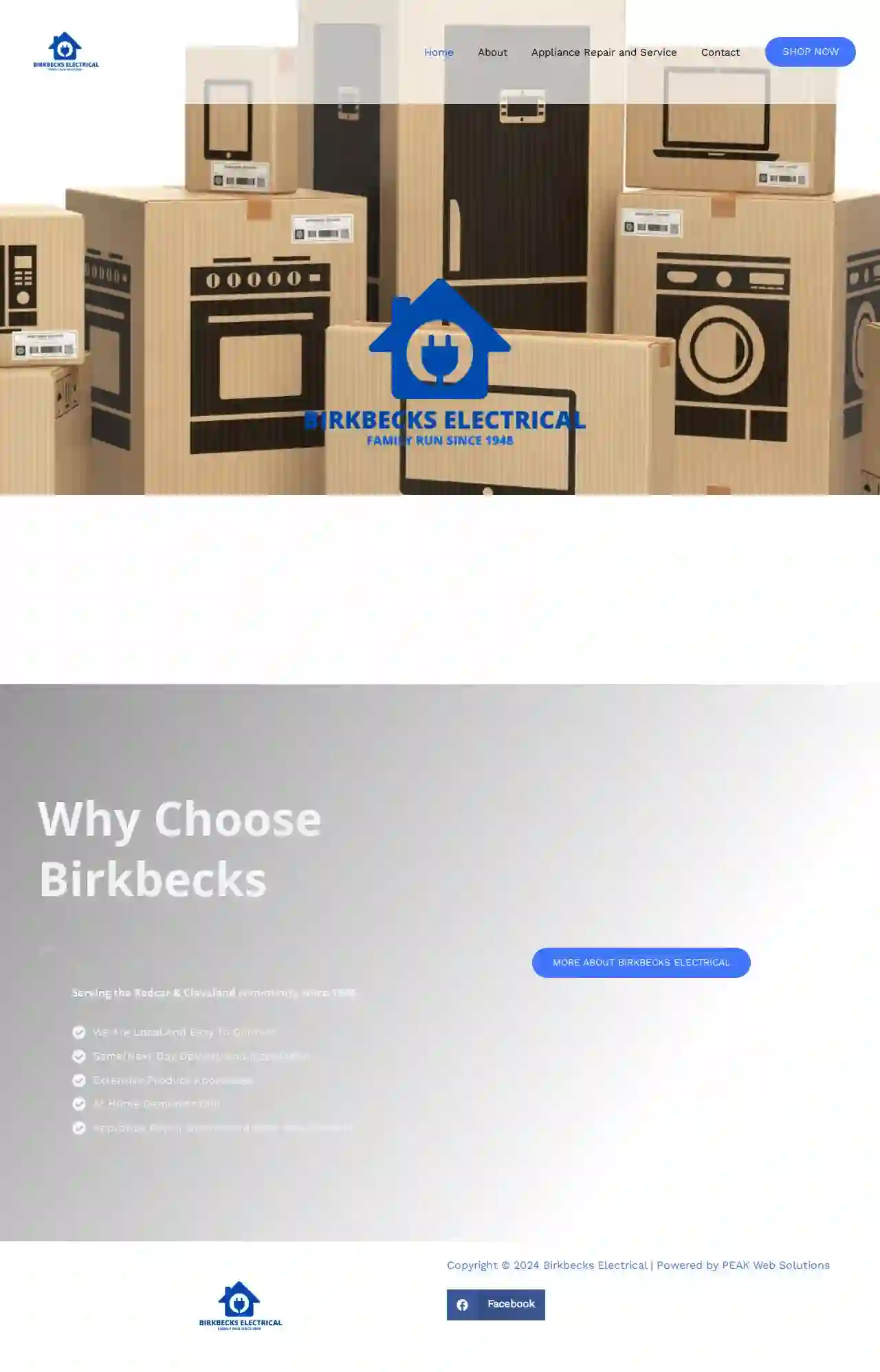
Birkbecks Electrical
4.8138 reviews100-102 High Street, Redcar, TS10 1PX, GBServing the Redcar & Cleveland community since 1948, Birkbecks Electrical is your local expert for all your appliance needs. We pride ourselves on our extensive product knowledge, commitment to customer service, and ability to provide same/next day delivery and installation. Whether you're looking for a new appliance or need repairs for your existing one, our team is here to help. We offer a wide range of appliances, from refrigerators and washing machines to ovens and cooktops. We also provide expert repair services for all major brands. Contact us today to learn more about our products and services.
- Services
- Why Us?
- Gallery
Get Quote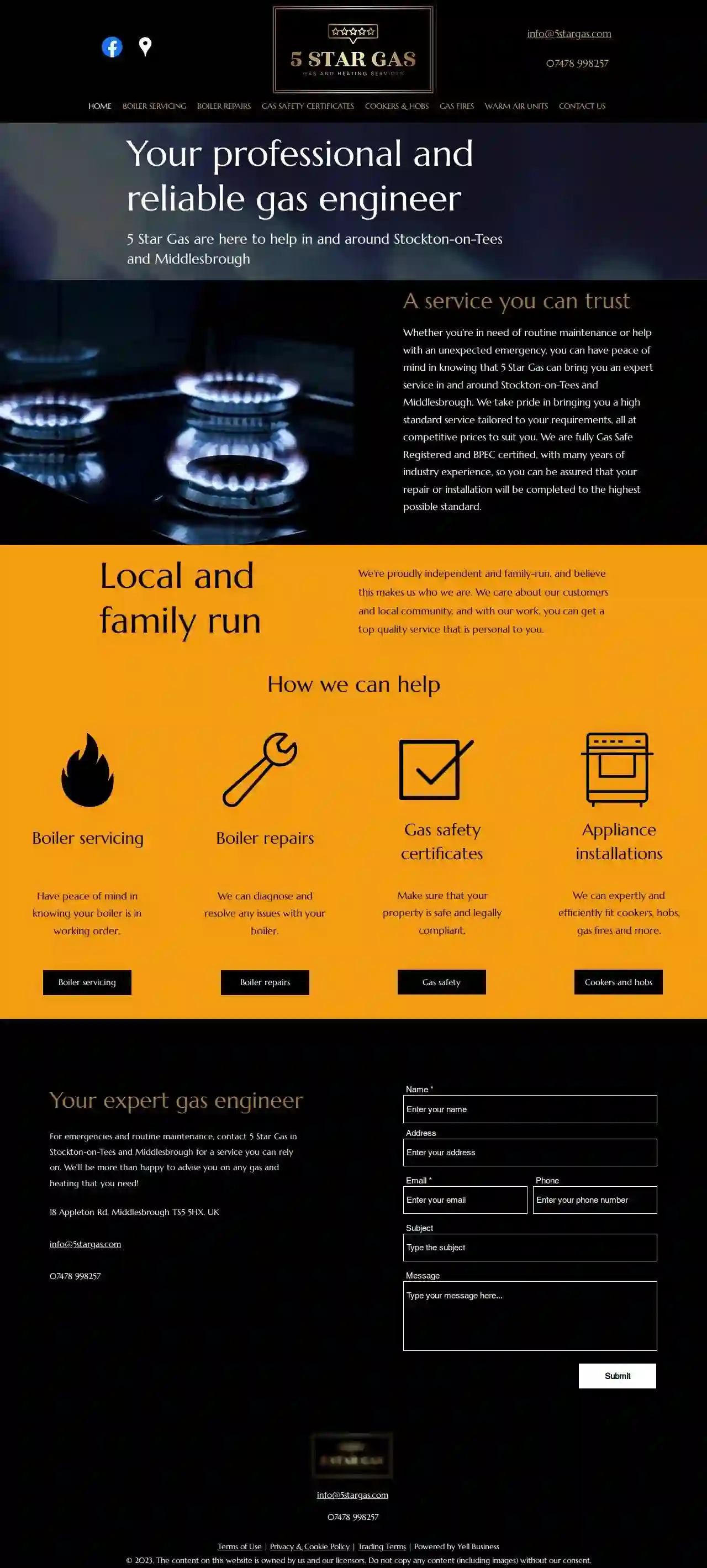
5 Star Gas
516 reviews18 Appleton Rd, Middlesbrough, TS5 5HX, GB5 Star Gas are a professional and reliable gas engineer serving Stockton-on-Tees and Middlesbrough. We pride ourselves on providing a high standard service tailored to your requirements, all at competitive prices. Whether you need routine maintenance or help with an unexpected emergency, you can trust 5 Star Gas to deliver expert service. We are fully Gas Safe Registered and BPEC certified, with many years of industry experience, ensuring your repair or installation is completed to the highest possible standard. As a proudly independent and family-run business, we care about our customers and local community. We believe this personal touch makes all the difference, providing you with a top quality service that is personal to you.
- Services
- Why Us?
- Gallery
Get Quote
Enertech FM Limited
53 reviewsKoppers Way, Monkton Business Park South, Unit 4 Apollo Court, Hebburn, NE31 2ES, GBEnertech FM is a trusted built environment solutions partner that offers planned and reactive maintenance services to a wide range of sectors. With a team of Subject Matter Experts, we deliver engineering excellence across various buildings, from hospitality venues to healthcare facilities. Our services include planned maintenance, 24/7/365 helpdesk, quality, health, safety, and environment, mobilisation, projects, and small works, energy solutions, and more. We have a strong presence across England, Scotland, and Wales, with regional offices and a team of over 0+ employees. Our valued customers include Southmoor Academy, Sunderland, and Surveyors to Education (S2e), The Friary Hospital, Richmond & South Tees Hospitals NHS Trust, Aldi Stores – National, and Fairstone Financial Management, Doxford Park, Sunderland, among others.
- Services
- Why Us?
- Accreditations
- Gallery
Get Quote
Over 12,692+ HVAC Contractors on our directory
Our HVAC companies operate in Skelton and surroundings!
HVACCompaniesHub has curated and vetted Top HVAC Contractors arround Skelton. Find the most reliable contractor today.
Frequently Asked Questions About Boiler Installation
- Age: If your boiler is more than 15 years old, you should probably consider replacing it. Newer boilers can significantly reduce energy bills.
- Frequent Repairs: Multiple service calls in recent years can be a sign that it is more cost-effective to replace your boiler. .
- Inconsistent Heating: If your boiler takes a long time to heat up the radiators, has inconsistent water temperatures, or creates inconsistent temperatures across your property, it may be time for a new one. .
- Leaks and Drips: Any dripping water around your boiler require immediate professional service.
- Unusual Noises: Strange noises like banging, kettling, or whistling coming from your boiler indicate that it's not operating optimally.
- Increasing Energy Bills: A noticeable rise in your energy bills , even with consistent energy usage habits , could be caused by a decrease in boiler efficiency.
- Yellow Flame: If the flame in your gas boiler is yellow instead of blue, it could indicate incomplete combustion, a sign that your boiler may need to be serviced or replaced. Contact a technician right away.
- Combi boilers: Combination boilers provide both heating and hot water instantly, saving valuable space. They are compact, efficient, and well-suited for smaller homes or apartments.
- Condensing boilers: Condensing boilers are one of the most efficient types of boiler. They extract more heat from the fuel by condensing the water vapor in the exhaust gases, thus saving energy. Because of increased efficiency, condensing units can help lower your carbon footprint and reduce heating costs.
- System boilers: System boilers are designed for larger homes and store domestic hot water in a separate cylinder. . They are a good option for homes requiring a higher volume of hot water.
- Regular boilers: Regular boilers, also known as conventional or traditional boilers, require a separate hot water cylinder, a cold water storage tank, and an expansion tank. They are suitable for larger properties with high hot water requirements and existing pipework.
Do I need a new boiler?
What type of boiler is best?
How do I bleed my radiators?
How do I turn off my boiler?
Do I need a new boiler?
- Age: If your boiler is more than 15 years old, it's likely to be less efficient and more prone to breakdowns. Newer boilers can significantly reduce energy bills.
- Frequent Repairs: Multiple service calls in recent years can be a sign that it is more cost-effective to replace your boiler. .
- Inconsistent Heating: If your boiler takes a long time to heat up the radiators, has inconsistent water temperatures, or creates inconsistent temperatures across your property, it could be failing.
- Leaks and Drips: Any dripping water around your boiler indicate a problem and should be addressed by a professional immediately. .
- Unusual Noises: Strange noises like banging, kettling, or whistling coming from your boiler indicate a potential problem that needs investigating. .
- Increasing Energy Bills: Higher utility costs, even with consistent energy usage habits , could be a sign of a less efficient boiler. .
- Yellow Flame: If the flame in your gas boiler is yellow instead of blue, it could indicate incomplete combustion, a sign that your boiler may need to be serviced or replaced. Contact a technician right away.
What type of boiler is best?
- Combi boilers: Combination boilers provide both heating and hot water on demand , eliminating the need for a separate water tank. . They are compact, efficient, and well-suited for smaller homes or apartments.
- Condensing boilers: Condensing boilers are highly efficient . They extract more heat from the fuel by condensing the water vapor in the exhaust gases, thus saving energy. Condensing boilers offer long-term savings.
- System boilers: System boilers are designed for larger homes and store hot water separately. They are a good option for homes requiring a higher volume of hot water.
- Regular boilers: Regular boilers, also known as conventional or traditional boilers, are the most traditional type of boiler, and they generally require the most space. They are suitable for larger properties with high hot water requirements and existing pipework.